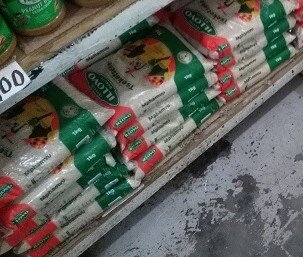
Illovo Sugar Company has hiked prices of their products, barely a few days after the local currency lost value by 25%.
According to a statement issued by Illovo, the new prices are effective today, 30th May, 2022.
The new prices will see consumers coughing K1,100 per kilogram of brown sugar from K900, whereas a Kilogram of white sugar will be trading at K1,150 from K930.
Prior to the rise in prices of sugar, a Kilogram was trading at less than K900. This has raised fears of a rise in the cost of other products.
Malawians are reacting angrily to the development. They believe the rise in the cost of living will make life worse for the citizenry.
Speaking in an interview with Mij Online, the company’s Managing Director Lekani Katandula has alluded the revision to rise in the cost of some inputs.
These inputs are fertilizer, fuel, electricity, and cost of growing sugarcane.
“Where is this nation heading? I fear for the worst if prices of commodities will be beyond reach for Malawians,” commented Dyson Phiri
Another comment by Kinto Kakuda reads, “Our funeral has just began. The end is here. Nyimbo ikhale 371, Kwathu sipadziko (Lets sing the song, the earth is not my home).
Follow us on Twitter:















The solution is right there in front of the government if they want it – development of farming industry will see increase in agricultural exports, and improve trade balance and Kwacha exchange rate vs foreign currencies. Implement policies to stop dependence on importing of agricultural produce and even processed goods from South Africa for sale in Malawi that can be manufactured locally in Malawi. This is what is causing a vicious cycle of foreign exchange transactions that result in lack of foreign exchange on one hand, and devaluation of Malawian Kwacha on the other. The government must urgently increase the funding and investments into developing industry related to producing processed agricultural food products. We can be exporting to Zimbabwe, Congo and neighboring areas of Zambia, thus resulting in net positive foreign exchange inflows and saving the struggling Malawian Kwacha.